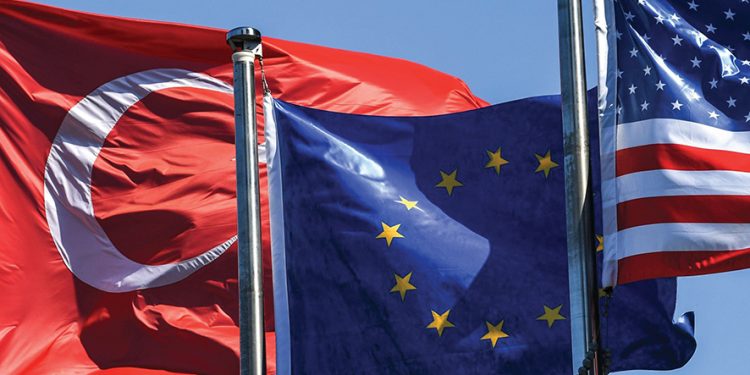Read Part 1.
The steps taken by Iran in the South Caucasus in the last two years can be seen as a significant development. Until 2020, Tehran played if not a passive, then certainly not a critical role in the South Caucasus. This can be explained by the fact that the South Caucasus was not a particularly important region for the Islamic Republic, as, for example, the Iraq-Lebanon-Syria area, the Persian Gulf or even Yemen. However, the results of the Second Nagorno-Karabakh War forced Tehran to change its attitude and become more active in the South Caucasus, particularly in regards to Azerbaijan-Armenia.
The second reason for Iran’s activation in the region is Russia, its war against Ukraine and the relative weakening of Moscow’s positions in the South Caucasus. Since the collapse of the Soviet Union, Russia has never needed Iran as much as it does today. This is well understood in Tehran, which shares with Russia intricacies and methods of living under sanctions, buys expensive military technologies from it, and sells what it produces itself, for example, deadly drones.
Yet Iran’s use of Russia’s weaknesses does not mean a complete revision of relations between Moscow and Tehran in the direction of the South Caucasus. Both forces are in favor of radical changes to the liberal order. Both often advocate the principle of regionalism, according to which non-regional powers should not be represented in the South Caucasus. That is why it is not surprising that Russia and its military bases are much more acceptable to Tehran than the military influence of the West (NATO) or even Turkey.
Another important country in our neighborhood for which 2023 may turn out to be a turning point is Turkey. The planned presidential and parliamentary elections, regardless of who the winners are, will be decisive for Turkey’s internal development. Whether this will be the case or not in foreign policy is a completely different matter. Some changes are inevitable. Efforts to reduce tensions with the US or Greece are expected, as are those with the NATO alliance. However, we should not expect radical foreign political changes. It is unlikely that the new government will deviate from expanding Turkey’s role in the region. For instance, in the South Caucasus, Turkey will continue to promote the development of East-West infrastructure, which in turn will be a great support for the Middle Corridor idea.
An active foreign policy is also expected due to Turkey’s geographical location. The country borders five geopolitically important regions: the Black Sea, the South Caucasus, Syria-Iraq, the Balkans, and the Mediterranean Sea. All these areas represent a separate independent geographical space, but are, at the same time, interconnected with each other. Those are the regions where geopolitical tensions of varying intensity prevail. Turkey will have to continue to conduct an active policy in several directions simultaneously, as it has been doing.
Moreover, since Ankara, like Tehran, is well aware of Russia’s weaknesses, it will be trying to take advantage of Moscow’s preoccupation in Ukraine. In previous articles, I have drawn attention to the instability of Russia’s position in the South Caucasus. Declining prestige, economic weaknesses, deepening mistrust with allies and, most importantly, the severe military defeats experienced in Ukraine.
These trends did not appear recently, but rather are a culmination of many years. Russia will need significant military and economic effort and, most importantly, a correct (changed) foreign policy to maintain its influence in the South Caucasus.
The South Caucasus has become even more important for Turkey in terms of relations with Central Asia. There, as well as in the South Caucasus, it is increasingly difficult for Russia to maintain its positions. The countries of Central Asia do not want to fall under a kind of Russian-Chinese condominium, and to avoid it they tend to attract other non-regional forces such as Turkey, a weighty economic and political force.
Thus, a multipolar period begins in the history of the Black Sea region and the South Caucasus, in particular. At the same time, several big players (Turkey, Iran, Russia, the US, the European Union, and China) are trying to spread their influence over the region, which is qualitatively different from the 1990s.
This is the end of the post-Soviet period in the South Caucasus: Russia is now not the major player, but increasingly only one of several main players. Iran, Turkey, and the EU now possess more tools to influence the region than they had in the 1990s-2000s. This allows the small countries of the South Caucasus to maneuver in foreign policy and potentially significantly strengthen their geopolitical positions.
Analysis by Emil Avdaliani
Emil Avdaliani is a professor at European University and the Director of Middle East Studies at the Georgian think-tank, Geocase.














